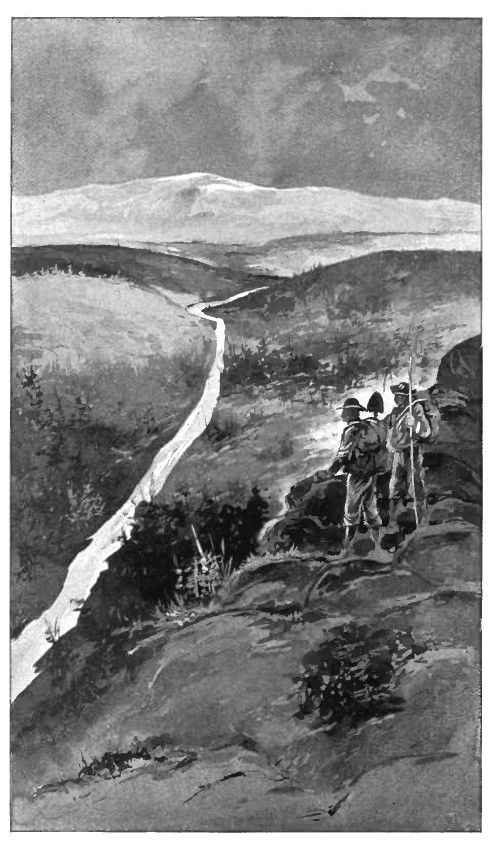|
|
The Alaskan Districts. In Alaska there are four distinct copper fields or districts.
The Prince of Wales Island; Prince
William Sound; Copper River district, and the Kotsina
district. They are described as follows:
(A) On Prince of Wales Island, In southeastern
Alaska several contact metamorphic copper ore deposits occur in irregular
masses along the contacts of the intrusives with limestones. The most important copper mineral is
chalcopyrite. It is associated with pyrrhotite, pyrite
and magnetite with a gangue of amphibole and feldspar. Fissure veins and
disseminated copper ores are also encountered. Those of Copper Mountain, Prince
of Wales Island, present
an unusually excellent illustration of deposits occurring at intervals along
the contacts of an isolated granite intrusion. The most important ore bodies
are contact-metamorphic ones occurring in irregular masses from 10 to 250
feet in dimensions, along the contacts of the intrusive rocks, usually with limestones, the ore composed mainly of chalcopyrite,
magnetite, pyrrhotite, and pyrite in a gangue of
amphibole, orthoclase, epidote, garnet, and calcite.
In addition to these there are lode deposits in shear zones, vein deposits in
fissures, and disseminated ores. The ores mined are somewhat low in grade,
with a little gold
and silver,
but high in iron and lime, and form a desirable flux for smelters of Tacoma and British Columbia. At Copper Mountain in the Hetta Inlet
district the ores are (1) contact deposits occurring between granite and lime
stone or schist, and (2) vein or shear zone deposits, occurring along the
bedding planes of the greenstone schist and quartzites.
The contact zone is of variable width and is broadest in the limestone.
|
|
|
(B) On Prince William Sound: In
this district the ore is chalcopyrite disseminated through the metamorphic schists. The copper ore is mainly associated with pyrite
and pyrrhotite as a cavity filling. Also as replacement
deposits of impregnations in a shear zone in interbedded
slates and graywackes. The most important
mine is on Latouche Island, and here the ore, is composed of a mixture of
chalcopyrite, pyrrhotite, and pyrite. On
the Kasaan Peninsula are several magnetite-chalcopyrite
deposits, also containing pyrrhotite and pyrite, in
a gangue of amphibole, epidote, orthoclase, garnet,
and calcite. Wright believes that the ores were formed after the
consolidation of the last intrusions of syenite. At
both places shear zones and vein deposits containing copper accompany the
contact deposits.
(C) Copper River District: The Copper River district is near Mount Wrangell. This region, which is situated some distance from
the coast, and hence difficult of access, has been but little developed,
although transportation facilities have now been provided. The primary copper
ores are chiefly are chalcocite and bornite associated with pyrrhotite
and magnetite as dissemination deposits in masses of greenstone. Some bornite replaces Triassic limestone near a greenstone.
The ore is chiefly chalcocite, but other sulfides
as well as oxidized ores occur. In the Bonanza mine on the Chitina River, the ore consists of a solid mass of chalcocite in limestone, averaging about 60 per cent
copper, with about 22 ounces of silver to the ton. The Chitina
copper belt, Alaska, is an area of
greenstone, mainly diabase, which is overlain by
Triassic limestones. Above the limestones
are later sedimentary rocks; all these rocks are cut by quartz
diorite porphyry. The country is rugged, and the region of the deposits has
been deeply eroded. The principal deposits are rudely tabular masses of
nearly pure chalcocite rich in silver, which occur
in fractured or fissured zones in the limestone above the contact with
greenstone.
|
|
The chalcocite
ore extends to the very surface and accumulates in talus from the cliff . Owing to the rapid mechanical disintegration and
the cold climate little or no gossan is developed.
Open cavities in the fractured limestone have been filled with ice, and both
the country rock and the talus are frozen all summer except for a few feet at
the surface. Tolman has shown that in the Bonanza
mine chalcocite replaces bornite.
The principal deposits are those of the Bonanza and Jumbo mines, owned by the
Kennecott Copper Co. The veins in a general way may be considered as
extremely thin wedges which gradually taper upward toward their apex and
whose bases rest on an inclined fault or bedding plane. The length of the
inclined wedges along their base is many times greater than their height from
base to top. The height of most of the veins has been determined, but
lengthwise along their base they are still being followed by inclined shafts.
The average height of the main Bonanza vein from base to top, measured normal
to the incline, is about 210 feet in the upper levels and 150 feet on the
lower levels. The vein has been followed for a distance of about 1,900 feet,
measured along its base, and the width varies from 2 to 50 feet.
The chalcocite
is oxidized and changed to carbonates near the surface, but no gossan is developed. It
crops out on the surface and has accumulated as talus and in a glacier below
the outcrop. The deposits are remarkable for the richness and unique
character of the ore. There is no evidence of primary ore adequate to supply
the material from which the chalcocite might have
been derived. Some investigators have regarded the ore of primary, others of
secondary origin. Bateman and McLaughlin are inclined to the hypothesis that
the ore is of deep-seated origin. This hypothesis appears probable for many
reasons. One of the most convincing is that some of the deposits are blind or
terminate upward against barren rock
(D) The Kotsina district
is situated some little distance inland from the coast. The chief copper
mineral is chalcocite. The ore is found as
replacement deposits in the Triassic limestones
associated with the earlier greenstones.
Return To:
Copper
Ore Deposits of the USA
|
 |

